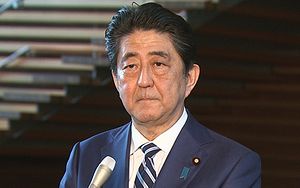The Association of Southeast Asian Nations’ (ASEAN) Regional Forum (ARF) ministerial meeting, which recently wrapped up in Singapore, represents one of the rare high-level international consultative forums to include senior representation from North Korea. This year, like in previous iterations, North Korea’s foreign minister, currently Ri Yong Ho, attended.
The ARF provided an opportunity for Ri to make a significant address on the ongoing diplomacy between the United States and North Korea, nearly two months on from the June 12 meeting in Singapore between North Korean leader Kim Jong Un and U.S. President Donald J. Trump. Separately, Ri had a rare opportunity to interact with his Japanese counterpart Taro Kono.
Japan’s role as North Korea has worked to “come out” on the international stage has been broadly marginal. Tokyo, as a U.S. ally in range of North Korea’s nuclear-tipped missiles has an obvious stake in the denuclearization of North Korea, but has had little success in reaching out to North Korea. Kim went from a leader who had met no foreign leaders since coming to power in 2011 to meeting, in the span of months, Chinese President Xi Jinping, South Korean President Moon Jae-in (twice), U.S. President Donald Trump, and Russian Foreign Minister Sergei Lavrov. (A summit between Kim and Vladimir Putin is anticipated later this year.)
The Friday encounter in Singapore between Kono and Ri underlined Japan’s effective isolation amid the historic diplomacy underway on the Korean Peninsula. On Monday, Japanese Prime Minister Shinzo Abe addressed his interest in pursuing a summit with Kim. Japan, after all, was once heavily involved in Korean Peninsula diplomacy as one of the six parties to the aptly named Six-Party Talks (the others being the two Koreas, China, Russia, and the United States).
“In the end, I must hold dialogue with Kim and resolve the issues of nuclear [weapons], missiles and, most importantly, North Korea’s abductions of Japanese nationals, in order to build a new bilateral relationship,” Abe said, speaking on the August 6 anniversary of the atomic bombing of Hiroshima in the second World War, in the same city. “Japan needs to take the initiative to resolve the nuclear, missile and abduction issues through cooperation with the international community,” the Japanese premier added.
An Abe-Kim summit isn’t unimaginable, but it might not be an immediate priority for North Korea. Consider that over the course of the first half of this year, there is plenty of evidence that anti-American and anti-South Korean propaganda in North Korea has retreated in favor of coloring Japan as the new top aggressor. North Korean state media has been full of vitriolic editorials condemning Japan—especially for Tokyo’s offers to pay for verifiable denuclearization efforts in the country. This might simply be an effort in Pyongyang to substitute the old “big bad” for a new “big bad,” but it also might suggest a lack of short-term interest in pursuing high-level Japan-North Korea talks.

































